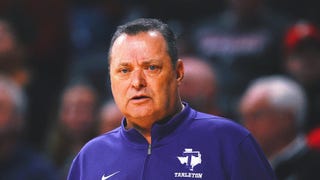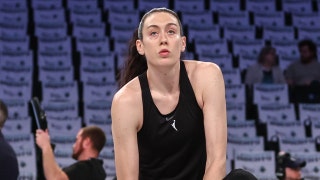Philadelphia, PA (SportsNetwork.com) - Moments after the 2014 Winter Classic wrapped in Ann Arbor on New Year's Day, hockey fans, especially those in the United States, eagerly awaited news on who would represent the Stars and Stripes at the upcoming Winter Olympics in Sochi, Russia.
However, shortly after the 25-man roster was unveiled in front of a packed house at Michigan Stadium, the joy of finally learning which players would make up the U.S. team at the Sochi Games quickly transitioned into confusion.
No Bobby Ryan? No Keith Yandle? No Kyle Okposo? The list of players who could qualify as "snubs" seemingly could go on forever and that's not necessarily a bad thing for Team USA.
As David Poile -- general manager of the Nashville Predators and Team USA -- indicated, this is new territory for the Americans, who had tougher decisions to make in picking a squad this time around, thanks to the nation's steadily deepening talent pool.
The U.S. also was forced to leave out some talented players between the pipes. Jonathan Quick (Los Angeles), Ryan Miller (Buffalo) and Jimmy Howard (Detroit) were all picked to go to Sochi while Tampa Bay's Ben Bishop and New Jersey's Cory Schneider didn't make the cut. Considering the lack of depth that other countries have in net, being forced to leave a few quality goaltenders at home is not the worst situation for the U.S. to find itself in.
"We left off some top players for the first time," Poile said. "Our problems are getting close to what Canada's are. We've never had this depth to deal with."
In Olympic years past, the U.S. team was made up of few stars (i.e. Mike Modano, Jeremy Roenick and Brett Hull) while the remanding part of the roster was filled in with role players who represented a serious drop-off in talent from the top-tier group.
Now, a guy like Ryan, a four-time 30-goal scorer, is being left off the roster in favor of guys who play a better all-around game than the talented Ottawa Senators forward.
Of course, if the U.S. encounters scoring issues in Sochi, Poile and his selection committee will be lambasted for leaving a pure sniper behind. But the fact that they could even make a convincing case for not bringing Ryan points to how much things have changed for the Americans. That's clearly a good sign for the future of U.S. Olympic hockey, even if the exclusion of Ryan, or an offensively-minded defenseman like Yandle, comes back to haunt the Americans in Sochi.
Poile, along with fellow NHL GMs like Ray Shero of the Pittsburgh Penguins and Stan Bowman of the Chicago Blackhawks, tried to build a team that offers them the best chance to compete on a larger ice surface than the ones played on at the NHL level. At the Vancouver Games in 2010, when the U.S. finished with a surprising silver medal after losing a classic final game against Canada, the ice hockey tournament was played on a smaller, NHL-sized surface, so it will be a different brand of hockey on display come this February in Russia.
In the end, guys like Ryan, Okposo and defenseman Dustin Byfuglien were not seen as the best fits for this go-round. The reasons for those players being excluded could be related to their effectiveness on the bigger ice or it could be about an intangible quality that the player reputedly lacks. For Ryan, it seems to have been a little bit of both, although one statement in particular suggests it had more to do with a perceived lack of fire.
As reported in a excellent story by ESPN's Scott Burnside, who had intimate access to the selection strategies deployed by the U.S. organization over the last few months, there were more than a few in the American brain trust that had serious concerns about Ryan's play. One quote in particular, made by the often controversial Brian Burke, managed to turn the snubbing of Ryan's into an even bigger story.
"He is not intense. That word is not in his vocabulary," Burke said of Ryan. "It's never going to be in his vocabulary. He can't spell intense."
Even though Burke was quoted saying things in favor of Ryan in other parts of Burnside's piece, that one blurb clearly ruffled some feathers. In a story by Bruce Garrioch of the Ottawa Sun, Ryan referred to Burke's comments as "gutless" and said he will use the slight as motivation going forward.
Although the evaluation process for picking the team takes months and months of hard work, the Olympic hockey tournament itself is a whirlwind. Countries battle for gold over the span of only 12 days, a short time compared to how long the results of the competition lasts in the memories of each country's supporters. If things don't go well for the U.S. in Sochi, you better believe Poile, and perhaps to an even greater extent, Burke, will be hearing about Ryan's omission for years to come.
One thing everybody can agree on, however, is it's becoming tougher and tougher to whittle down an All-Star team of American hockey players to just 25 players. All things considered that's a pretty nice place to be.








































